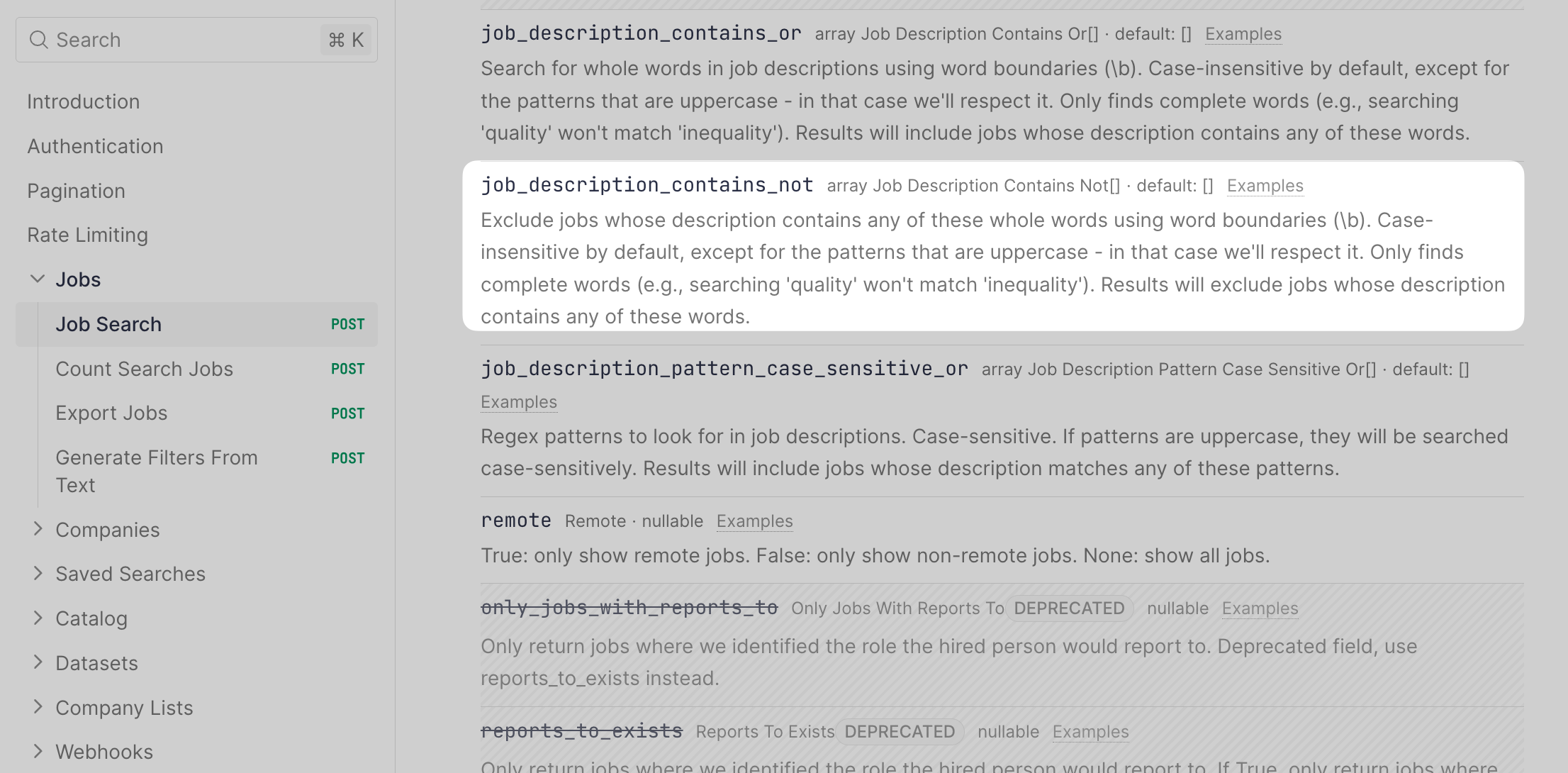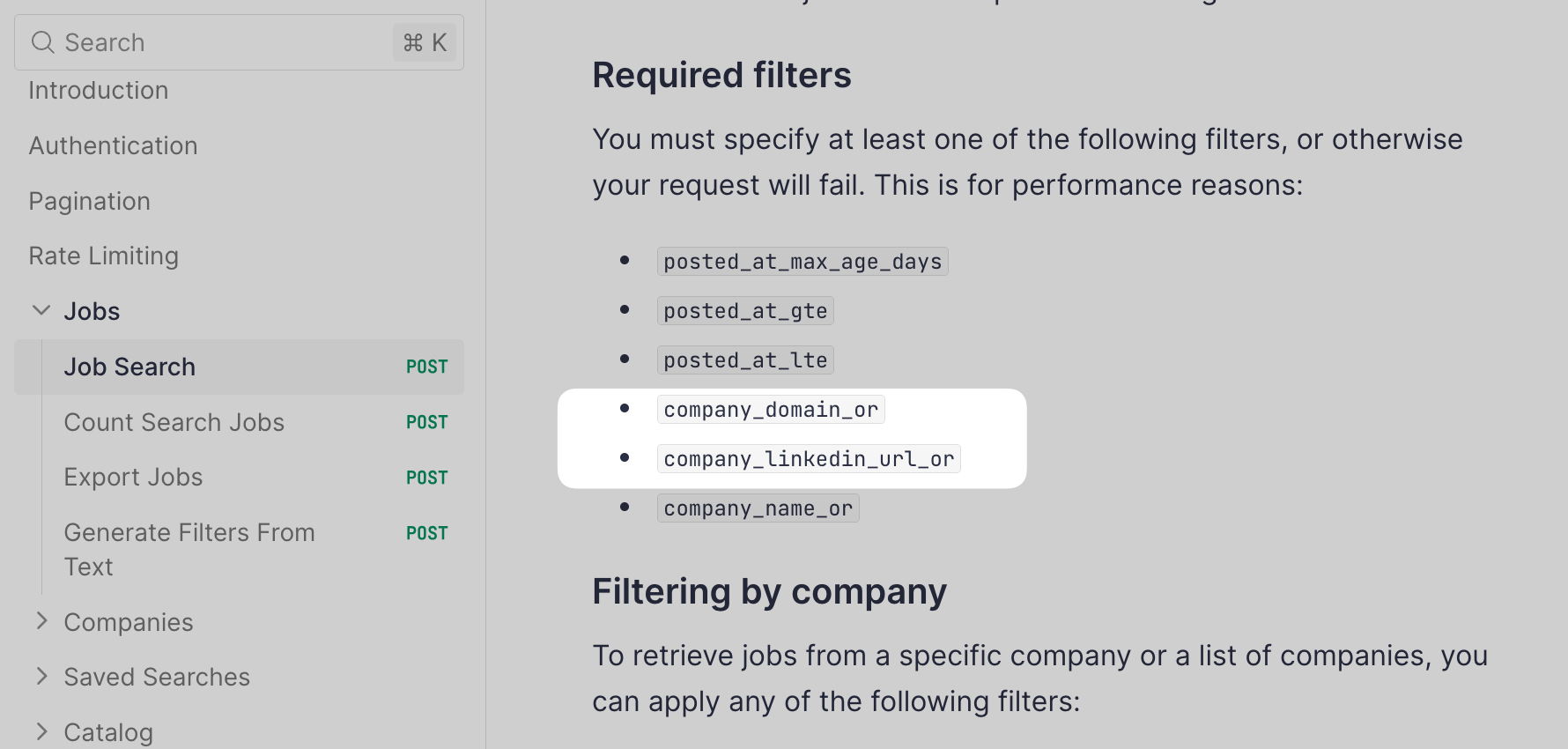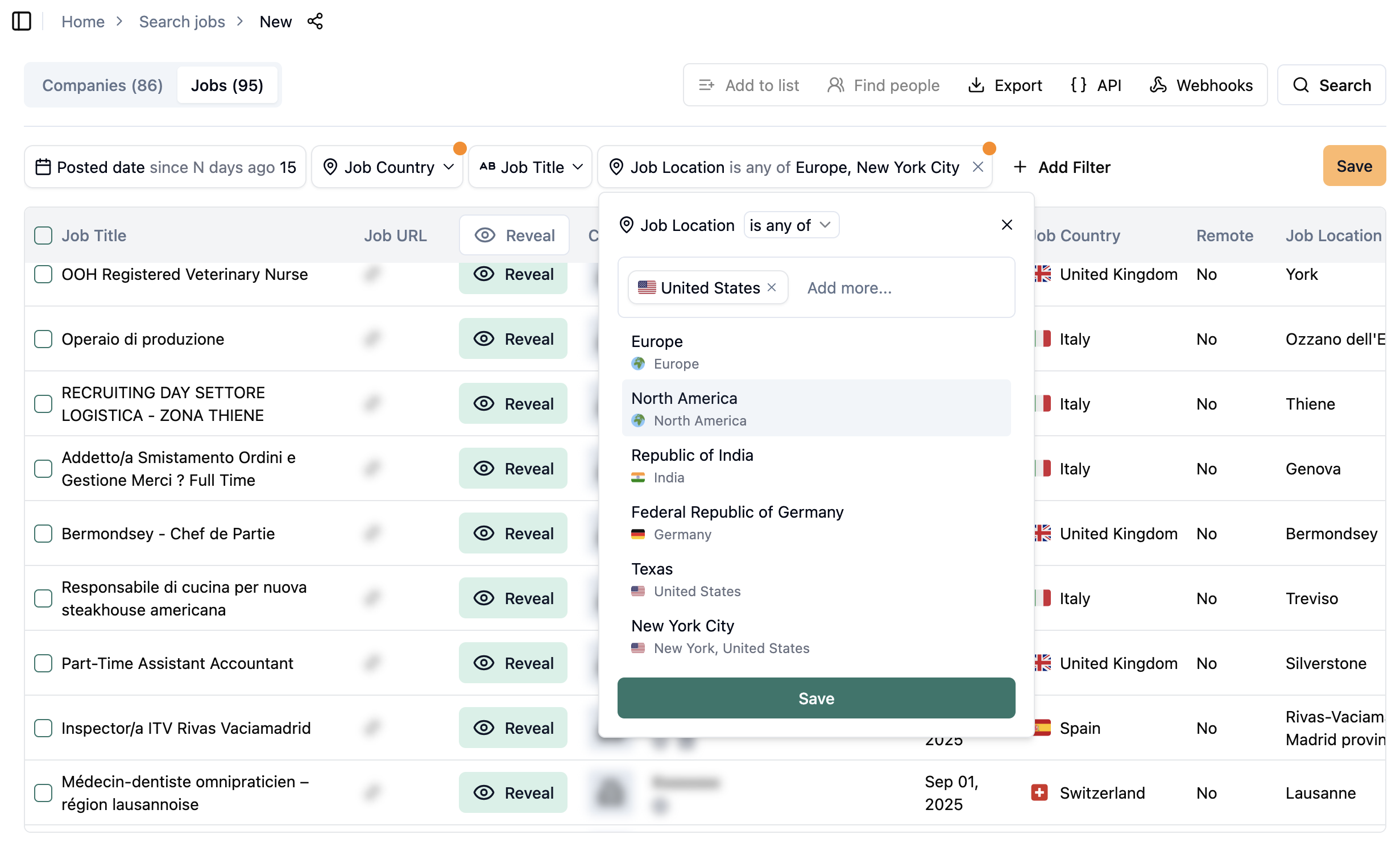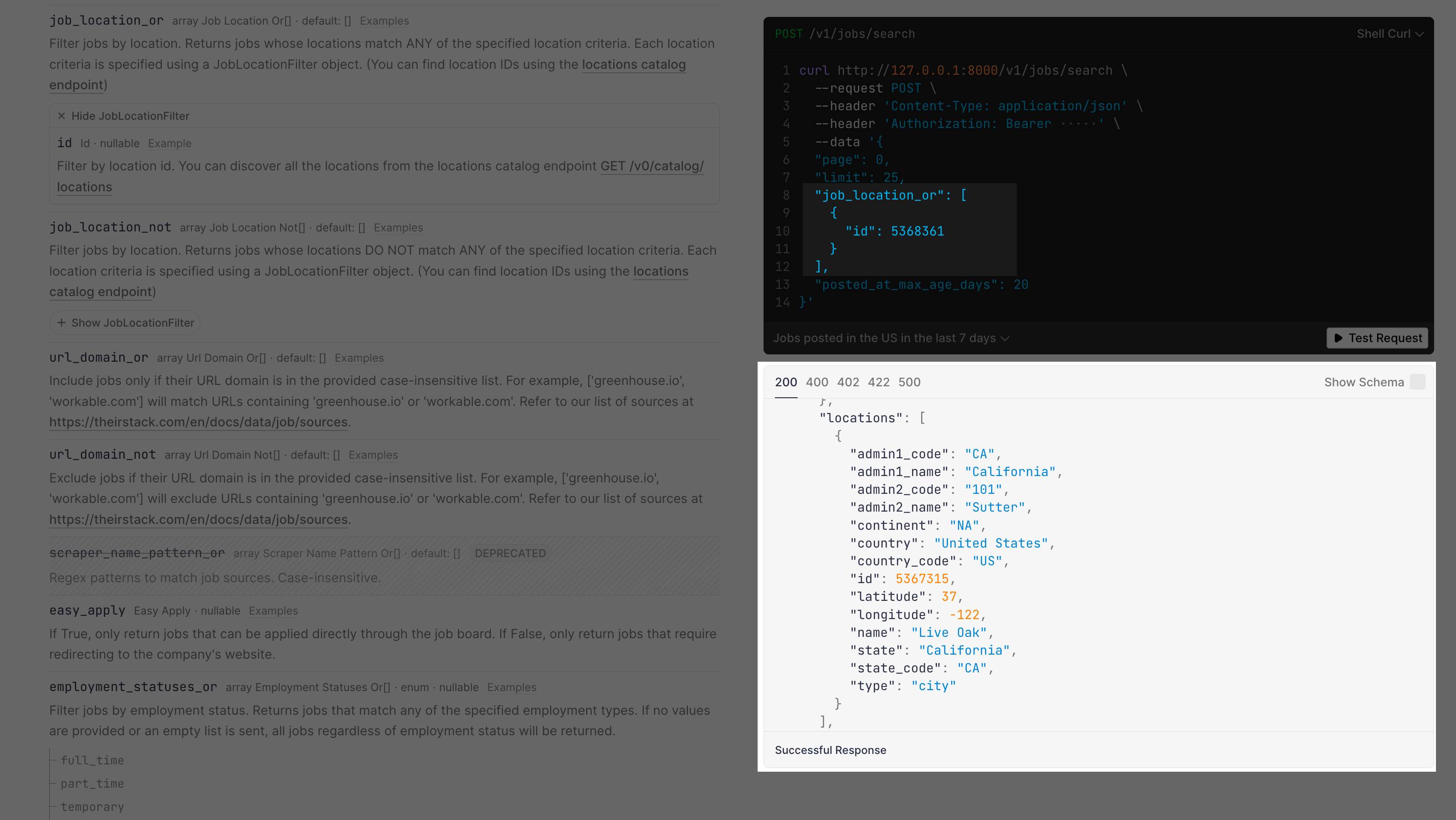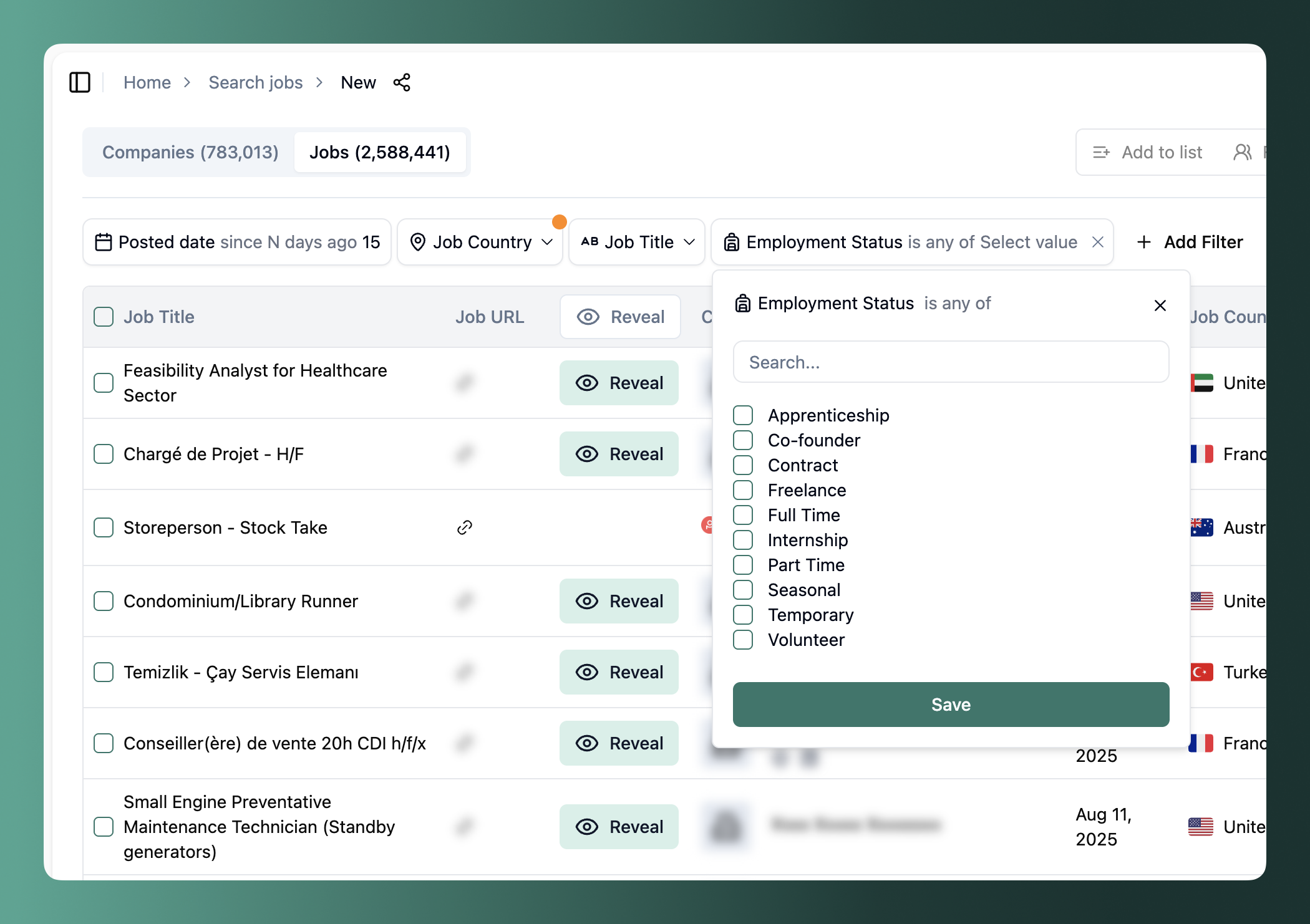Update to blur_company_data for single company queries
Starting October 9, 2025, blur_company_data won't have any effect when filtering by a single company and will be charged as if it wasn't there. This change helps us maintain our low pricing while keeping the platform sustainable for everyone.
Read more about this update in our blog post.


